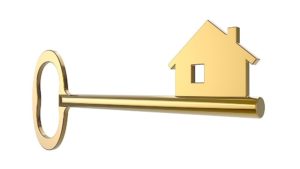Your First Investment Purchase Checklist
Posted by JD Esajian // August 24, 2016

There is a lot to consider when buying your first investment property. In addition to finding the right market you also need to know what you want from the property. By starting with the end in mind it will help guide you every step of the way. Knowing your property goals will also give you some direction as far as purchase price, down payment amount and what type of loan programs are available. The best way to stay focused and organized, especially on your first purchase, is to come up with a checklist of everything you need. Instead of getting pulled in several different directions you can streamline the process and end up with the right property for you. Here are five items you need to know before you can move forward with your first investment purchase.
- Price Range. What you want to do with your property may not be what you are able to do. The starting point for any purchase is the price. You need to know what you can or want to pay every month. The purchase price directly reflects your monthly payment. Most people can find a mortgage calculator online and get a good idea of the principle and interest payments. With any purchase there is more that goes into the payment. In addition to the principal and interest you also need to account for the property taxes and homeowners insurance. When looking at multifamily properties both of these figures can be much higher than you anticipate. Instead of starting with a price range you should start with a monthly payment number in mind. By knowing this you can work backwards to give you the purchase price range you need to be in.
- Down Payment Amount. Many new investors are confused as to what loan programs are available to them. A loan program for a single family owner occupied purchase is much different than that for a three family investment property. The two biggest differences are with the minimum credit score and the down payment requirement. With almost any investment property you will need a minimum down payment of roughly 20% of the purchase price. It is not enough simply have these funds available. They need to be in a dedicated account typically for at least sixty days. In addition to the down payment you also need to account for the closing costs and property tax escrows. If you are using a lender they are going to hold anywhere from three to eight months of your property taxes upfront. This can be thousands of extra dollars you need to account for depending on the specific town. Before you get too far with your purchase you need to take inventory of exactly how much cash you have for the down payment and closing costs.
- Income. A major consideration of every purchase is the debt to income ratio. Even though you may have no trouble paying your bills and bring it significant income it may not matter. Lenders look at how much documentable income you can produce. If you are self-employed you may not declare all your income on your tax return. This can be great come tax time but will hurt you when shopping for a loan. If your adjusted gross income is poor you will have a difficult time finding a loan regardless of anything else. Long gone are the stated income and limited documentation programs. If you don’t show enough income or you have too much debt on your credit report you won’t get approved. As you are getting everything in place to make an offer you should take a look at your previous year’s tax returns and a copy of your credit report. Look at how much income you show and how much debt you are carrying. If you are weak in these areas it can be a deal breaker.
- Financing. With any investment purchase you want to have as many options as possible. Start out by talking to your local lender or mortgage broker. Having them pull a copy of your credit report and supply them with any income information they need. Within an hour or so they should be able to give you an idea of what they can do for you. If you cannot get approved all hope is not lost. There are many alternative funding sources available, chief among them hard money lending. A hard money lender acts like a bank but does not have the strict guidelines associated. They have their own criteria usually based on the individual property. Their interest rates and fees may be higher but this is often the best way to finance your first purchase.
- Timeframe. When do you want to close? Most rehab properties will only accept offers that can close as quickly as possible. This usually calls for hard money offers. If you are determined to use lender financing you need to have everything in place before you make an offer. If you are looking to purchase buy and hold properties with a lender you can expect there to be a 45 day wait time. There is nothing wrong with closing a few deals a way but you still have to stay on top of your financing year round. Without an updated pre-qualification letter or proof of funds you will miss out on good properties that come your way.
These five areas will give you a great head start with your first purchase. Don’t be afraid to ask questions whenever they come up. The more deals you close the easier the process becomes.
